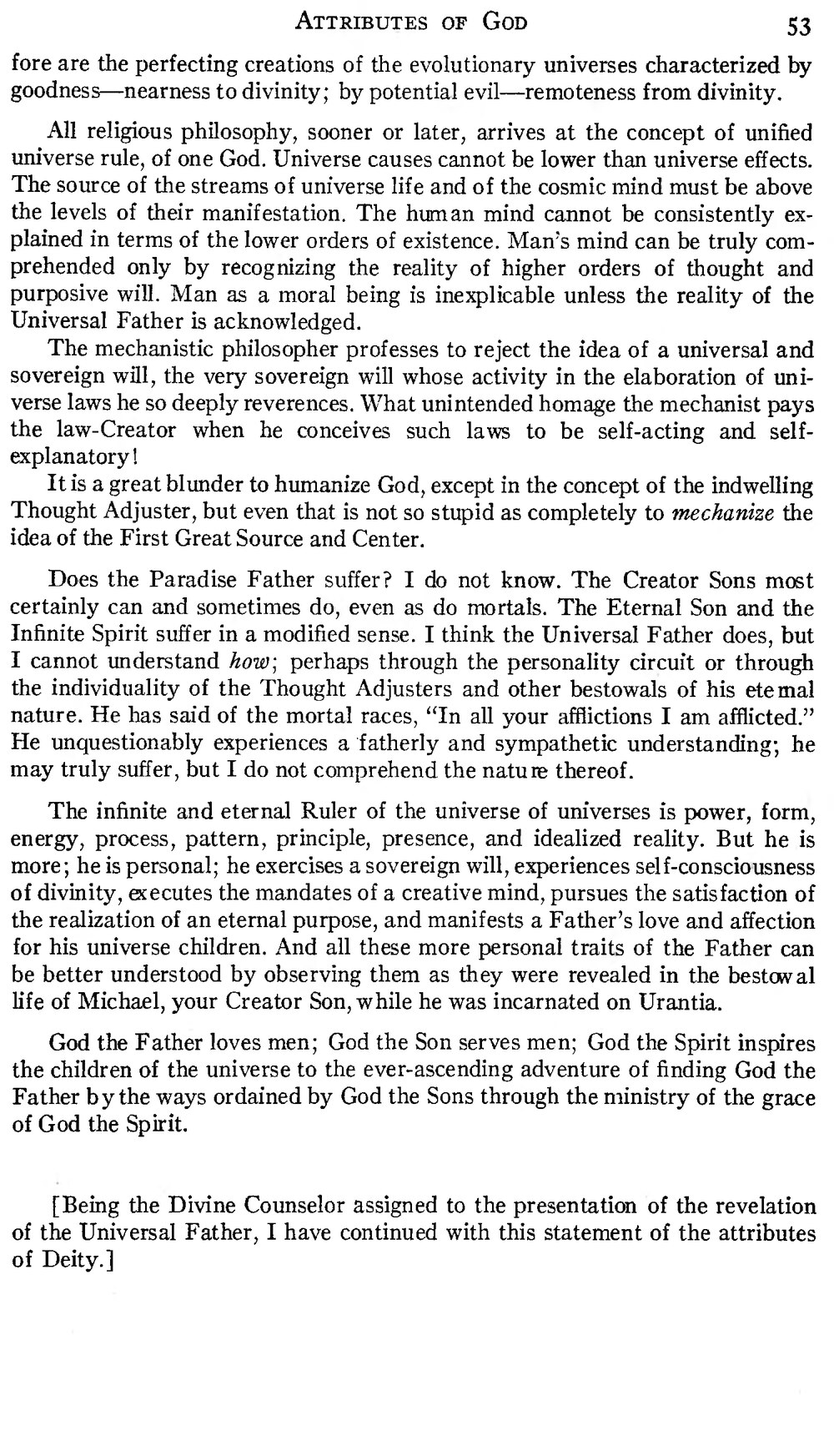fore are the perfecting creations of the evolutionary universes characterized by goodness—nearness to divinity; by potential evil—remoteness from divinity.
All religious philosophy, sooner or later, arrives at the concept of unified universe rule, of one God. Universe causes cannot be lower than universe effects. The source of the streams of universe life and of the cosmic mind must be above the levels of their manifestation. The human mind cannot be consistently explained in terms of the lower orders of existence. Man's mind can be truly comprehended only by recognizing the reality of higher orders of thought and purposive will. Man as a moral being is inexplicable unless the reality of the Universal Father is acknowledged.
The mechanistic philosopher professes to reject the idea of a universal and sovereign will, the very sovereign will whose activity in the elaboration of universe laws he so deeply reverences. What unintended homage the mechanist pays the law-Creator when he conceives such laws to be self-acting and self-explanatory!
It is a great blunder to humanize God, except in the concept of the indwelling Thought Adjuster, but even that is not so stupid as completely to mechanize the idea of the First Great Source and Center.
Does the Paradise Father suffer? I do not know. The Creator Sons most certainly can and sometimes do, even as do mortals. The Eternal Son and the Infinite Spirit suffer in a modified sense. I think the Universal Father does, but I cannot understand how; perhaps through the personality circuit or through the individuality of the Thought Adjusters and other bestowals of his eternal nature. He has said of the mortal races, "In all your afflictions I am afflicted." He unquestionably experiences a fatherly and sympathetic understanding; he may truly suffer, but I do not comprehend the nature thereof.
The infinite and eternal Ruler of the universe of universes is power, form, energy, process, pattern, principle, presence, and idealized reality. But he is more; he is personal; he exercises a sovereign will, experiences self-consciousness of divinity, executes the mandates of a creative mind, pursues the satisfaction of the realization of an eternal purpose, and manifests a Father's love and affection for his universe children. And all these more personal traits of the Father can be better understood by observing them as they were revealed in the bestowal life of Michael, your Creator Son, while he was incarnated on Urantia.
God the Father loves men; God the Son serves men; God the Spirit inspires the children of the universe to the ever-ascending adventure of finding God the Father by the ways ordained by God the Sons through the ministry of the grace of God the Spirit.
[Being the Divine Counselor assigned to the presentation of the revelation of the Universal Father, I have continued with this statement of the attributes of Deity.]

